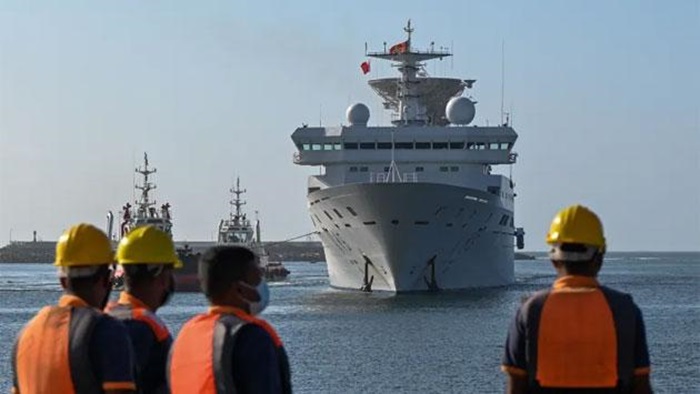Is there a secret to longevity? This health expert says 1,000% yes
In the era of social media, post-COVID, and with mental health at the forefront, a shift is taking […]

Sri Lanka has reportedly given clearance for 12 foreign vessels to dock at its ports this year, despite the ban on foreign research vessels entering the country. This decision was made due to security concerns expressed by India and the US, particularly regarding the frequent docking requests from technologically advanced Chinese surveillance vessels.
Since the ban was implemented on January 1, 2024, Sri Lanka has permitted 12 foreign vessels to dock. The most recent is the Indian Naval Submarine (INS) Shalki, which arrived at the Port of Colombo on August 2. Notably, no Chinese vessels have visited Sri Lanka since 2023.
Under the previous year’s policy, the Ministry of Defence revealed that 32 foreign vessels were cleared to dock in Sri Lanka before the ban. This included 12 vessels from India, five from the US, and three from Japan and Indonesia. Additionally, there were two vessels each from France, China, and Pakistan, as well as three vessels from Algeria, the UK, and South Korea, which visited Sri Lankan ports between January 1 and December 31, 2023.
Foreign Minister Ali Sabry recently announced that Sri Lanka plans to resume permitting calls from foreign research vessels starting next year, demonstrating the nation’s position of impartiality in international disputes. He emphasized that Sri Lanka cannot have different regulations for different countries and reiterated the decision to not take sides in such disputes. The moratorium is set to be lifted in January 2025, signaling the end of the current ban on foreign research vessels.
Sri Lanka’s decision to allow foreign vessels to dock at its ports despite the ban on research vessels is a clear indication of its diplomatic approach towards international relations. The country’s renewed permission for foreign research ships from next year also reflects its commitment to maintaining equilibrium in its dealings with other nations. This decision by Sri Lanka aims to showcase its adherence to principles of non-alignment and acceptance of different nations, while also maintaining its duty to uphold national security interests.

In the era of social media, post-COVID, and with mental health at the forefront, a shift is taking […]

With its fast speeds and revolutionary potential, 5G stands out as a noteworthy milestone in the field of […]